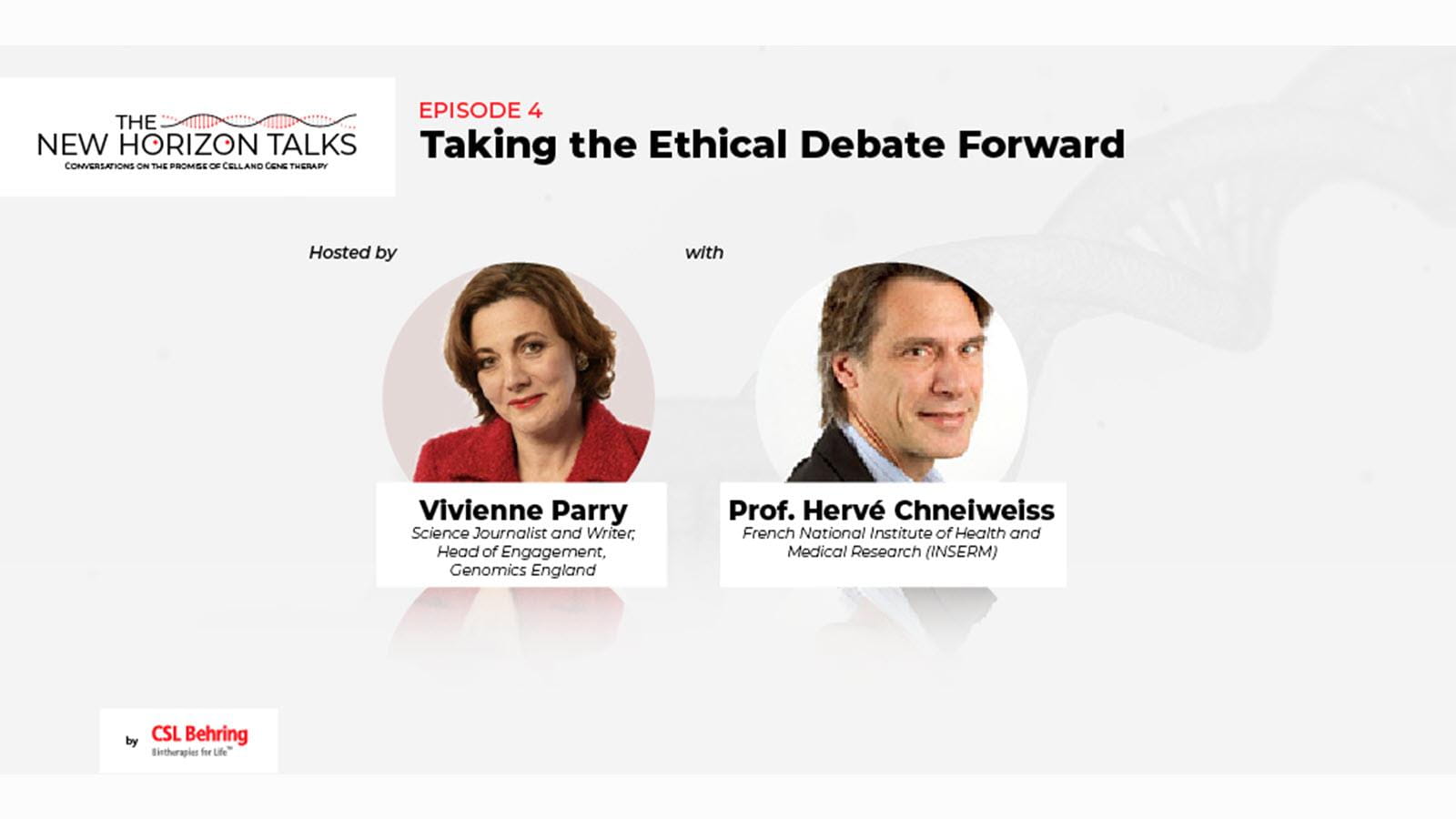The fourth and final episode of the New Horizon Talks audio series is all about the ethics of cell and gene therapy with expert insights from World Health Organization (WHO) adviser Professor Hervé Chneiweiss.
What questions are patients posing? Which myths should be debunked? What should guide ethical approval while the long-term effects are not yet known?
Listen to “Taking the Ethical Debate Forward”
Cell and gene therapies offer the promise to change patients’ lives, preventing years or even decades of poor health and heavy treatment burden. But this major shift in disease treatment changes a person’s genetic profile and raises ethical questions about responsibility and access.
“On one side you have the unmet need: millions who have the disease waiting for treatment. The ethical question for them will be ‘what kind of dignity are we able to give them?’ Then you have the question of accessibility, also related to the development of the treatment, the production infrastructure and the logistics to distribute it,” Chneiweiss said in the episode.
“The New Horizon Talks” audio series aims to stimulate dialogue and to promote long-term healthcare system sustainability and patient access. CSL Behring, a global biotech that specializes in treatments for rare and serious diseases, has acquired global rights to commercialize an adeno-associated virus (AAV)-based gene therapy for hemophilia B developed and being tested by uniQure.
The podcast explores transparency, responsibility in science, research inclusivity and preventing discrimination in access to treatment. In the discussion, moderated by science journalist Vivienne Parry, Chneiweiss discusses recent recommendations on human genome editing, which were published in July 2021. In addition to his role with WHO, Chneiweiss also chairs the Ethics Committee for Inserm, a French public research organization dedicated to human health.



